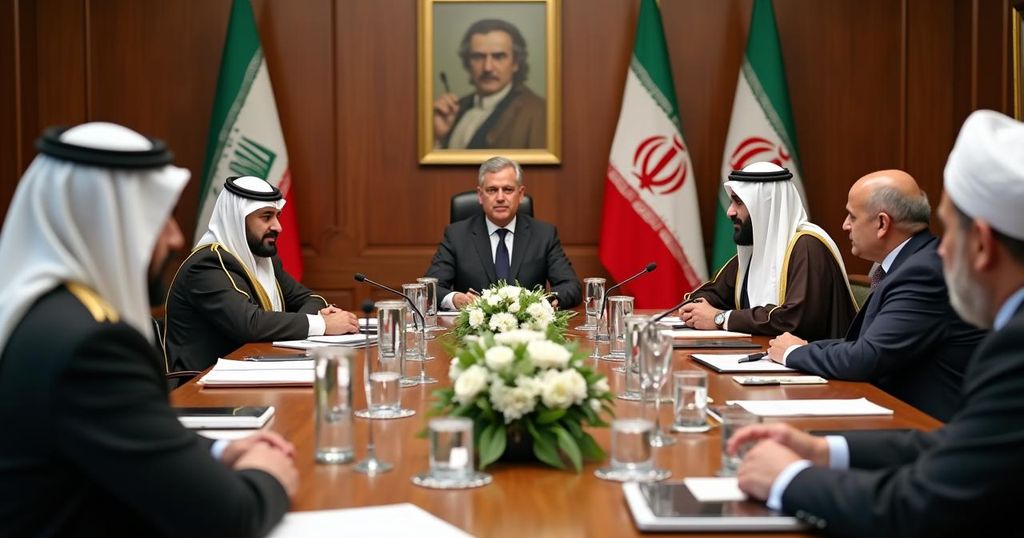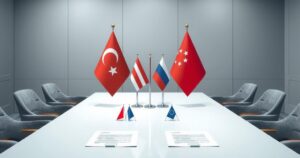Qatari and Iranian Officials Convene to Discuss Regional Turbulence in Gaza and Lebanon

On October 10, Qatari and Iranian officials convened to address bilateral relations and regional issues, particularly concerning Gaza and Lebanon. Both nations underscored the importance of collaborative efforts to reduce violence and enhance stability in the region, reflecting shared concerns and interests amid escalating tensions.
On October 10, Qatari Prime Minister and Minister of Foreign Affairs Sheikh Mohammed bin Abdulrahman bin Jassim Al-Thani engaged in discussions with visiting Iranian Foreign Minister Abbas Araghchi in Doha. Their meeting centered around the enhancement of bilateral relations and a review of recent regional developments, particularly those affecting the Gaza Strip and Lebanon. The Qatari Foreign Ministry emphasized that the discussions highlighted the crucial need for both regional and international collective efforts to de-escalate tensions and prevent the proliferation of violence across the area. Sheikh Mohammed reaffirmed Qatar’s steadfast commitment to fostering security and stability both regionally and globally. In reflecting upon the meeting, Minister Araghchi noted that Iran and Qatar recognize shared concerns and interests and expressed a strong commitment to collaboration. He pointed out the pressing challenges faced by the region that necessitate close consultations and joint strategies.
The discussions between Qatar and Iran’s foreign ministers occur amid heightened tensions in the Middle East, particularly relating to ongoing conflicts in the Gaza Strip and Lebanon. Both nations play strategic roles in the region, with Qatar often engaging in diplomatic efforts to mediate disputes and Iran being a key player in regional politics with vested interests in these conflicts. The collaboration between these two countries could potentially influence broader geopolitical dynamics and may lead to necessary dialogues aimed at reducing hostilities.
In summary, the meeting between Qatari and Iranian officials reflects a mutual commitment to enhancing bilateral relations while addressing critical regional issues. Both parties acknowledged the urgency of concerted efforts to mitigate conflicts in areas like Gaza and Lebanon, marking an important cooperative stance amid challenging circumstances. It underscores the importance of dialogue and collaboration in navigating the complexities of Middle Eastern politics.
Original Source: www.socialnews.xyz








